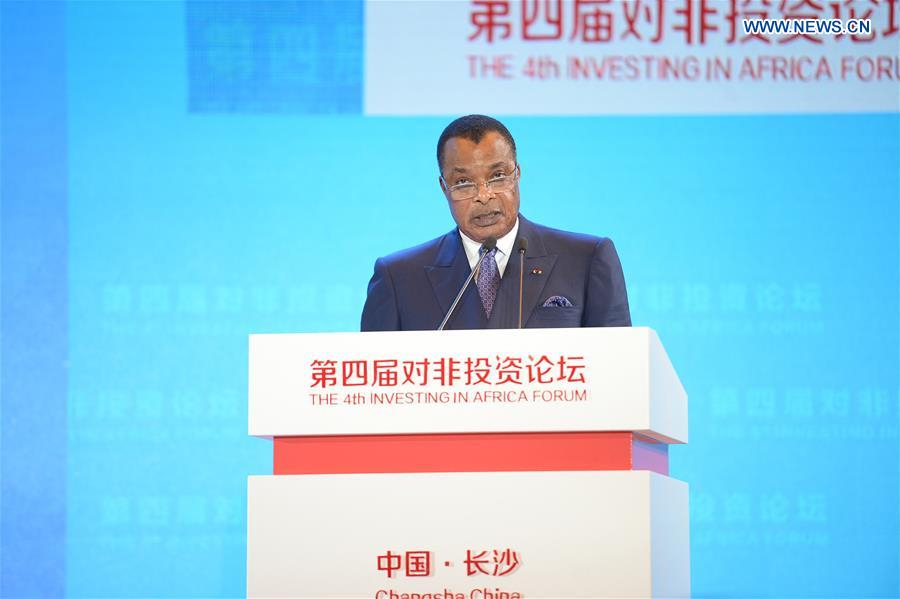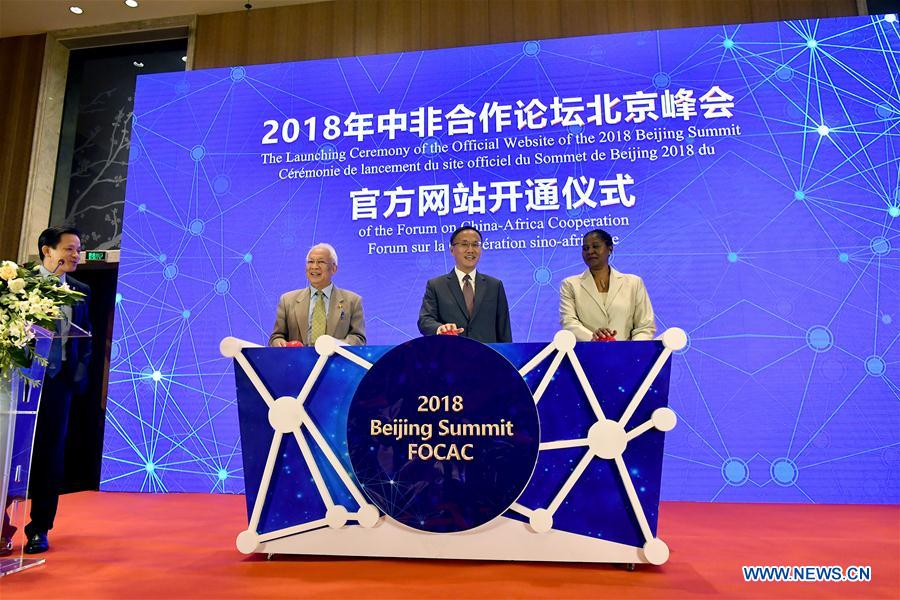China-Africa cooperation mirrors a historical shift amid globalization
On June 24 and 25, 2019, China is hosting a coordinators meeting as a follow-up action of the 2018 Beijing Summit of the Forum on China-Africa Cooperation (FOCAC) to review the implementation on trade, security and development.
On June 24 and 25, 2019, China is hosting a coordinators meeting as a follow-up action of the 2018 Beijing Summit of the Forum on China-Africa Cooperation (FOCAC) to review the implementation on trade, security and development. Ministerial officials from 54 African countries, together with their Chinese counterparts, are expected to release a joint declaration on the fulfilling of the consensus reached on the 2018 summit.

President of Sierra Leone Julius Maada Bio speaks during the 4th Investing in Africa Forum in Changsha, central China's Hunan Province, Sept. 6, 2018. [Photo/Xinhua]
The upcoming China-Africa Economic and Trade Expo host by Changsha, Hunan Province is one of those follow-up actions. All these deeds, usual steps in international cooperation, mirror the historical shift in the globalization process that has been dominated by Anglo-Saxon nations for centuries.
Reviewing the history of FOCAC summits since 2000, one could easily see the gradual but solid steps to the driving forces for vigorous growth on the two emerging continents. In international cooperation, what’re truly precious are exactly these follow-up actions and commitments, rather than miscellaneous mechanisms and institutions.
Following last year's FOCAC summit, pragmatic measures have been on the way to further tackle the top three bottlenecks in African development: Infrastructure construction, financing and talent fostering. Infrastructure and industrial investments in countries like Kenya and Ethiopia under the Belt and Road Initiative are seen as exemplary projects in South-South cooperation.
In an era featuring uncertainties and fluctuations, the momentum of interconnectivity between emerging countries that China has been endeavoring to boost is increasingly clear. FOCAC is just a part of the cooperation between China and African countries. On a broader scale, these emerging countries resonate deeply in seeking development opportunities. While China is witnessing a transformative stage in its national reform and opening-up, many African countries are also in a key period of reform, trying to walk out of the fog of their political economy.
With mutual political trust as an indispensable prerequisite, the convergence of development interests between Asia and Africa bears historical meaning. When these emerging countries sit together and jointly look for their stable, innovative and sustainable economic development models, such interest convergence becomes not only the hope for their national and regional governance, but also a driving force to shape an improved international order and a more tolerant global community.

Launching ceremony of an official website of the Forum on China-Africa Cooperation (FOCAC) Beijing Summit 2018, Beijing, China. [Photo/Xinhua]
On the African continent, a group of independent nations with economic vigor and national confidence have been on the rise since early 21st century. At the moment, China's cooperation with these countries is breaking the traditional stereotype of Western-style aid to Africa, providing fresh samples of national interaction on an equal footing in a transformative era of globalization.
In the past few decades, the emerging world has been calling for a more tolerant and open international economic system, in which developing countries, no matter the size, could enjoy equal welfare brought by global flow of capital and goods.
Due to the momentum of development in Asia and Africa, especially the cooperation between emerging countries on the two continents, a historical shift is happening in existing global pattern at an accelerated pace.
Looking back in history, the two sides of the Atlantic have been the center of global political and economic pattern for centuries. But in the past decade since the 2008 financial crisis, it's crystal clear that the global focus now increasingly shifts to the emerging world. The ongoing protectionist trends in both the U.S. and Europe, featured by Brexit talks and Trump administration policies, reaffirm the observation that the Ango-Saxon globalization once dominated by British and American neoliberalism is indeed coming to an end.
In a long perspective, the evolution of global pattern and the improvement of global governance order is a complicated process. But the world's development never stops. Amid this new round of wealth distribution conflict triggered by a new round of development, the possibility of achieving new balance and new stability in the world relies on the level resilience and tolerance of various countries.
For countries on the vast Asian and African continents, the only way forward is to follow the shifting momentum of global pattern, seize the timing of rejuvenation, and jointly create new space of growth.

